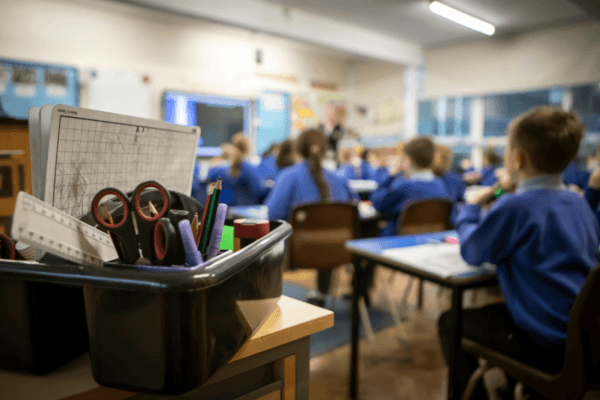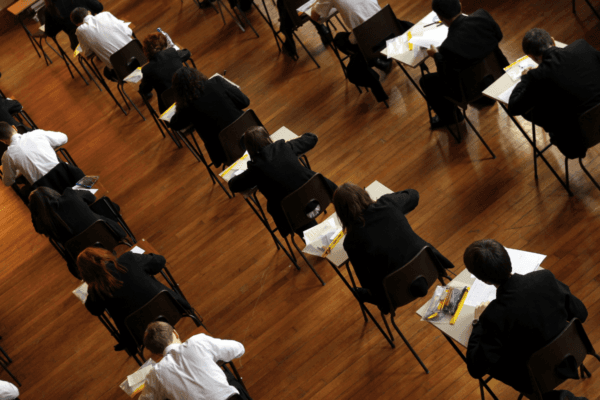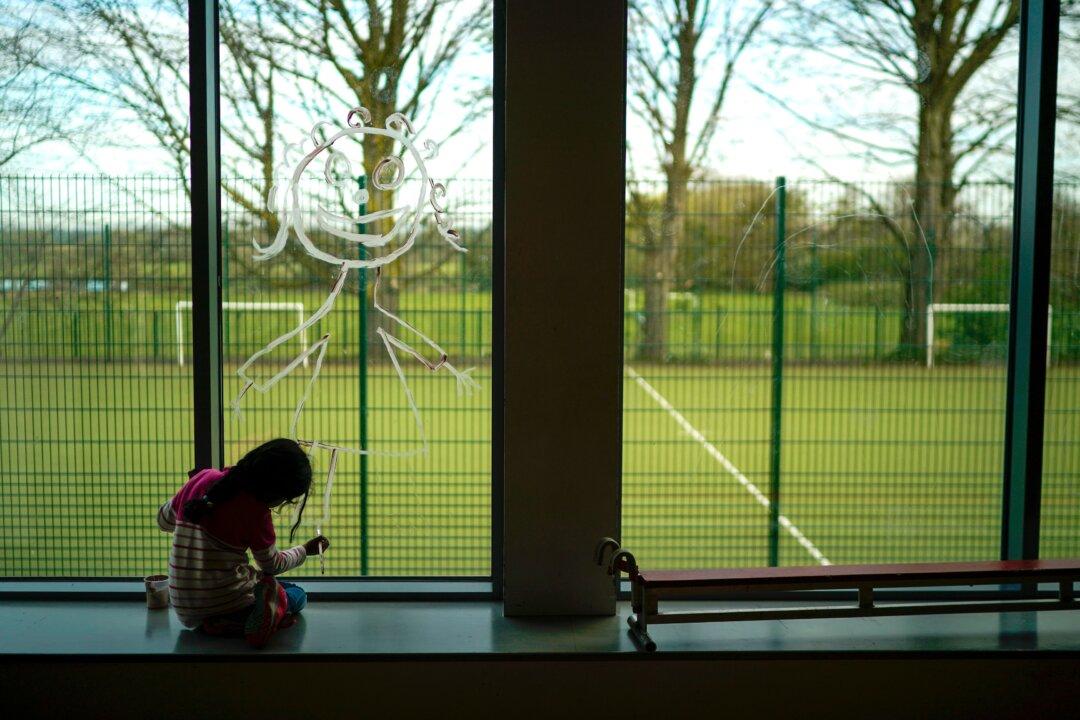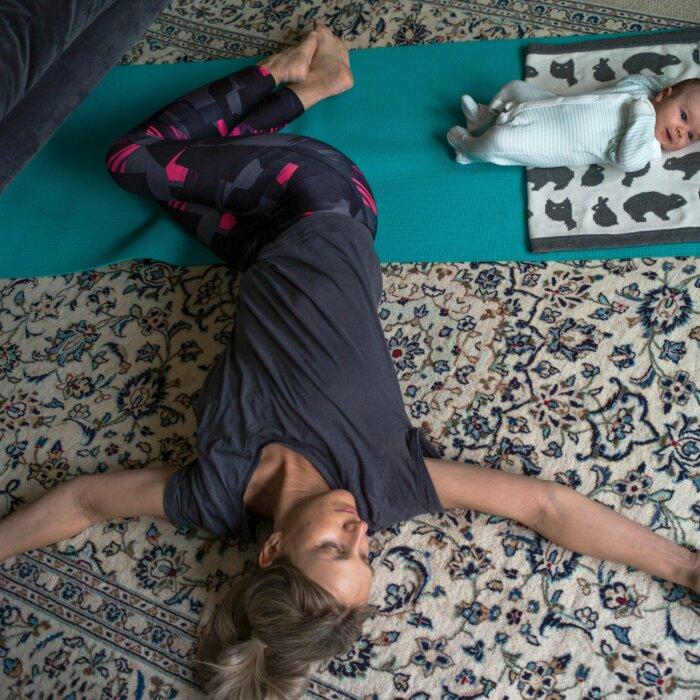Lockdown-induced school closures will “significantly damage” the educational prospects of children who started school during the COVID-19 period, academics have warned.
The study funded by the Nuffield Foundation and published on Wednesday says the “educational damage” wrought by mass school closures in England will have an impact on children “well into the 2030s,” with generations set for the biggest declines in GCSE test results “for at least two decades.”
“Covid induced learning losses and declines in socio-emotional skills will significantly damage the education prospects of 5-year-olds at the time of Covid school closures, with boys 4.4 percentage points less likely to achieve 5 good GCSEs and girls 4.8 percentage points less likely to do so,” academics at the universities of Exeter and Strathclyde and the London School of Economics found.
The researchers predicted that “less than four in ten pupils in 2030 will achieve grade 5 or above in English and mathematics GCSEs,” comparing the estimates to 2022/2023 figures where 45.3 percent of pupils in England achieved this benchmark.
Lee Elliot Major, one of the report authors and a professor of social mobility at the University of Exeter, said, “We’ve had lots of debates about the pandemic, it could be that the sort of worst legacy of all is actually the damage to the education of a whole generation of children.”
Mr. Elliot Major warned that poorer GCSE results “will scar successive cohorts of children well into the 2030s, signalling a decline in the country’s social mobility levels.”
Long-Term Prospects
The report, “A Generation at Risk,” also examined the educational prospects of older children, finding that the socio-economic gap in basic GCSE grades for those who were aged 11 at the time of lockdown school closures is set to “significantly widen” by 4.5 points for boys and 4.3 points for girls.“This equates to a 32-percentage point socioeconomic gap in standard passes in English and maths GCSEs from 2024,” the report said.
Researchers also assessed long-term prospects for the economy and income mobility. They estimated that due to lower lifetime earnings, this lockdown-induced educational damage will cascade into the national economy, equalling an aggregate economic cost of £31.4 billion in today’s prices.
The study estimates for the children aged 11 during lockdown, the relationship between parental and child income will increase by 15 percent for girls and 12 percent for boys. “By international standards, this equates to a significant decline in income mobility,” the report said.
Declines in Socio-Emotional Skills
Authors highlighted the importance of the “socio-emotional development” of children in these age groups and how they were affected by the lockdown.“Children also suffered a significant decline in socio-emotional skills,” the report said, adding that coupled with the cognitive skills decline, pupils’ emerging development would be limited at every life stage.
“Socio-emotional development is just as important as cognitive skills in shaping children’s future education and life prospects,” the authors wrote, including achieving good GCSE grades and decent salaries after school.

The report said that school closures not only deprived children of access to face-to-face learning, “but to the many other things that schools provide, from emotional support to social interaction.”
Risk Failing a Generation
In an attempt to rectify the damage, authors recommend a series of reforms, including rebalancing the school calendar by spreading outbreaks more evenly, which researchers think will help improve teacher and pupil wellbeing.Other recommendations include using trained undergraduate tutors to deliver academic and mentoring support to pupils and an “enrichment guarantee” in schools so all children can “benefit from wider activities outside the classroom that nurture socio-emotional skills.”

The authors concluded that “failure to rebalance the education system will risk failing a generation damaged from learning losses and declines in socio-emotional skills. The likely fall in income mobility levels will cast a long shadow over our society for decades to come.”
Responding to the report, a Department for Education spokesperson said: “We have made almost £5 billion available since 2020 for education recovery initiatives, which have supported millions of pupils in need of extra support. We are also supporting disadvantaged pupils through the pupil premium, which is rising to almost £2.9 billion in 2024-2025, the highest in cash terms since this funding began.”
The spokesperson added that this was “on top of our ongoing £10 million Behaviour Hubs programme and £9.5 million for up to 7,800 schools and colleges to train a senior mental health lead.”







